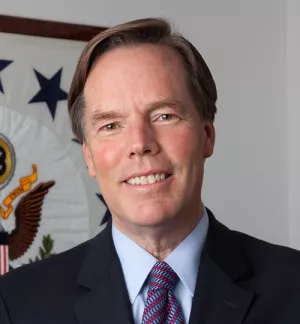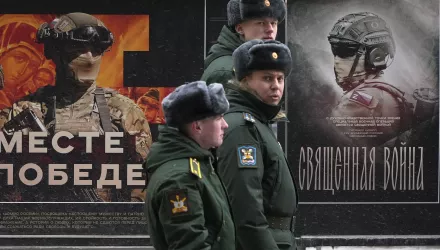Are we are on a collision course to war with Iran? With negotiations flagging, sanctions inconclusive, and an intransigent Iran speeding boldly ahead with its nuclear enrichment program, the US government appears determined to stop Iran one way or another. My Harvard colleague, Graham Allison, calls it “a Cuban missile crisis in slow motion.” Iran and the United States are like two trains hurtling toward each other on the same track in a breakneck game of diplomatic chicken.
This arresting scenario was the major take-away from the meeting of the nonpartisan Aspen Strategy Group (of which I am the director) last week. Few of the former senior government officials, journalists, and academics present were clamoring for a fight with Iran, especially after the bitter wars we have fought in Muslim countries since 9/11. But many believe an attack by the United States is likely in the next year or two unless something alters our calculus.
I came away from the Aspen meeting with one conclusion — the United States should do all it can to avoid war and look for another way to stop Iran’s drive for a nuclear weapon. And it must insist Israel not attack this autumn, as the Israeli press is predicting, and let us lead the international response against Iran. With that in mind, there are three steps the United States can take before electing to fight.
First, the winner of November’s election should do what every president since Jimmy Carter has failed to do — create a direct channel between Washington and Tehran and begin an extended one-on-one negotiation with all issues on the table. The United States should aim for the sustained and substantive talks it has not had in the three decades since American diplomats were taken hostage in Tehran. Once elected, either Barack Obama or Mitt Romney could ask his secretary of state to lead talks with Iran or choose a distinguished former cabinet official such as James A. Baker, one of America’s most accomplished negotiators. We should exhaust diplomacy before we consider war. To attack a country before we have had our first meaningful discussions since 1979 would be shortsighted, to say the least.
Second, the United States must for the first time put far-reaching proposals on the table if diplomacy and negotiations are to succeed. Obama has rightly followed essentially the same policy on Iran as George W. Bush. Both offered to negotiate but also placed increasingly tough sanctions on Iran and threatened force if necessary. But the negotiating channel we have tried for six years now — a multilateral forum with the United States as one of six countries under European Union leadership — has produced no results and tied the hands of American negotiators. A new US-Iran channel would reinforce those talks. To be successful, however, the United States must be ready to compromise by offering imaginative proposals that would permit Iran civil nuclear power but deny it a nuclear weapon.
Third, the United States needs to take the reins of this crisis from Israel to give us more independence and protect Israel’s core interests at the same time. Israel’s concern that an Iranian nuclear weapon would pose an unacceptable risk is completely understandable. We should reaffirm our determination to protect Israel’s security. But the United States, not Israel, must lead on Iran during the next year. It is not in America’s interest to remain hostage to Prime Minister Netanyahu’s increasingly swift timetable for action. We need the freedom to explore negotiations with Iran on our own slower timeline before we consider force.
Despite partisan rhetoric, there is a rough bipartisan consensus in Washington, including between Obama and Romney, that talks make more sense now than war. Should negotiations fail, we would have a more convincing case for force. But we should learn from Iraq by proceeding carefully before unleashing war and its dangerous and unpredictable consequences in a region already in turmoil.
In the decade after 9/11, we reflexively turned to the military in Iraq and Afghanistan. Shouldn’t we now restore diplomacy as our first responder to face our greatest international challenges? There is no guarantee that diplomacy will work. But before we launch a third Middle East war, we would be well advised to consider first how we might defeat the Iranian leadership by other means — at the negotiating table.
Burns, Nicholas. “Diplomacy is the best tool for Iran.” The Boston Globe, August 16, 2012



